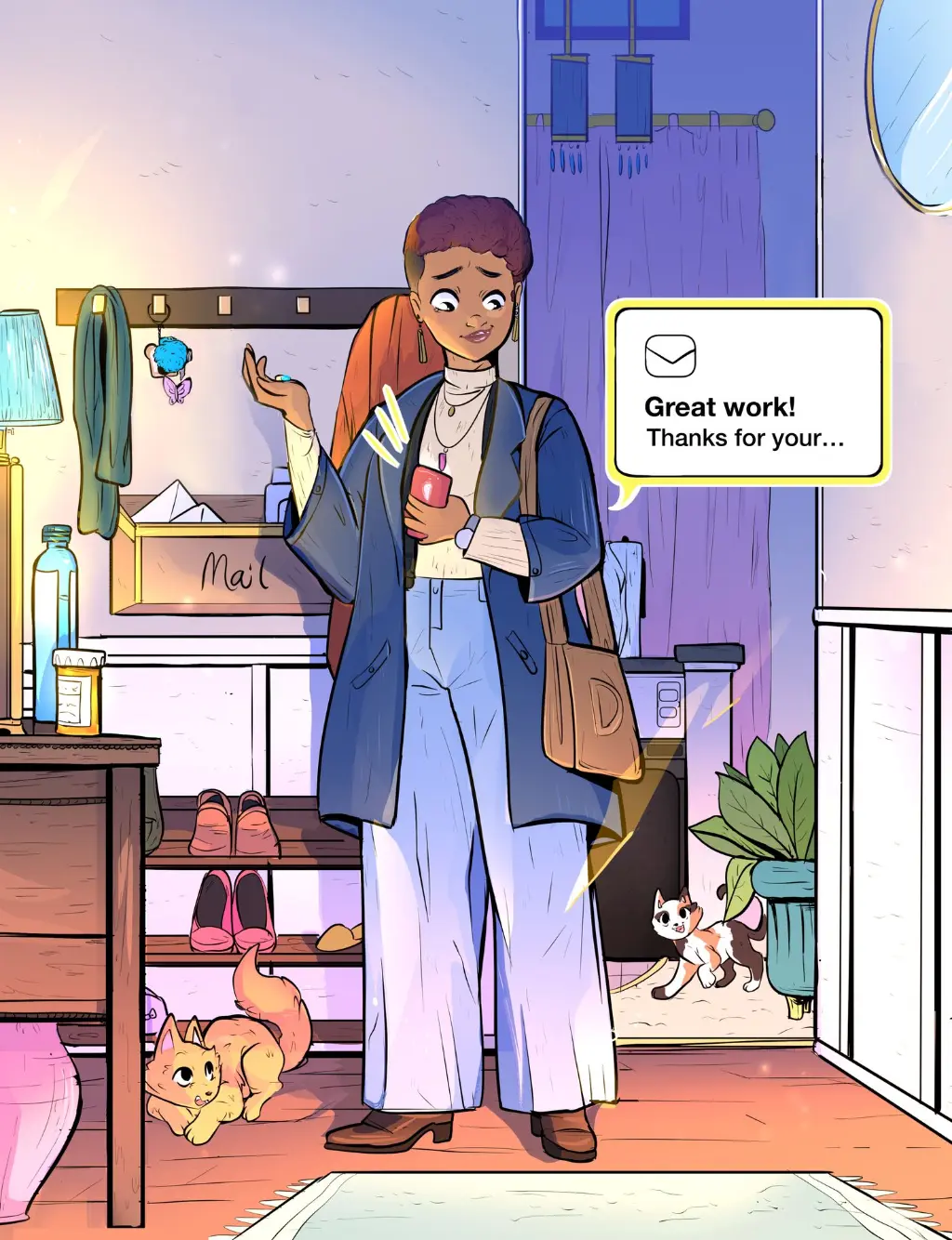Real talk: at one point or another, every single queer leader I work with tells me they have Imposter Syndrome. Those who know me know this is when I hop on my soapbox.
Those imposter feelings (“I’m not actually skilled enough to do this job!”; “They’re going to figure out that I don’t know what I’m doing!”; “I don’t fit in here and everyone around me is about 5 minutes from realizing it!”) are SO familiar for leaders who don’t fit the status quo. They show up for lots of reasons, and guess what? Those feelings aren’t based on anything that’s actually true about us.
Here are a couple of factors that are often at play for queer leaders:
Minority Stress
The minority stress model is a framework used to understand the unique stressors and challenges faced by individuals who belong to marginalized or minority groups, such as LGBTQ+ folks.
In short: Constant exposure to unfair treatment, discrimination, and prejudice leads to stress. This stress isn’t just from direct personal experiences; it's also the everyday stress of living in a society where prejudice and discrimination against people like us are common. This stress can pile up over time and affect our mental and physical health, and if you’re part of more than one marginalized or minoritized community, it compounds. (oh hi, intersectionality.)
That stress shows up for queer folks in a bunch of ways, including that it leads us to…
Rejection Sensitivity
Rejection sensitivity is a psychological concept that refers to how strongly someone reacts to the possibility of rejection or criticism from others. It goes a little something like this:
Through the Minority Stress we just talked about, we learn to anticipate negative regard from members of the dominant culture.
⬇️
To avoid that potential negative regard, discrimination, and violence, we become hyper-vigilant.
⬇️
This brings us to a conflict between “self-perception” and “others-perceptions.”
⬇️
As a result of this conflict, our self-perception can become vulnerable and destabilized.
⬇️
When our self-concept becomes unstable, it can really fuel imposter feelings, making us question whether we truly deserve our accomplishments and leadership roles.
If you want to read more about these concepts and how they play out for queer folks, check out Ilan Meyer's study expanding on minority stress within the lesbian, gay, and bisexual populations, and Brian Rood, et al.'s study focused on "expecting rejection" as a way to understand the minority stress experiences of transgender and gender-nonconforming individuals.
Feeling like an imposter is a pretty normal response to operating in a world that’s not set up for our belonging. (Shout out to Ruchika Tulshyan and Jodi-Ann Burey for their leadership on this in their article Stop Telling Women They Have Imposter Syndrome).
As queer leaders, we're constantly pushing boundaries, challenging norms, and disrupting oppressive systems. It's no wonder imposter feelings arise when we're leveling up and asserting our power in spaces that weren't designed for us.

Illustration by Dominique Davis for Disabled And Here
Okay, but I still feel like I have Imposter Syndrome so…?
Totally. It doesn’t really matter that the causes of our imposter thoughts and feelings are external, because those thoughts and feelings still live in our minds and bodies.
The good news is there’s a lot we can do to take care of ourselves when those imposter feelings come up.
To help you get started, I’ve created a 5-day Imposter Syndrome Breakthrough. It’s designed specifically for queer leaders who are tired of feeling like imposters in their leadership journey. You’ll get an email from me each day, and over the course of the week you’ll:
- Explore some common causes of imposter feelings, and develop practices to disrupt them
- Reframe common ideas about imposter syndrome from a queer, antiracist lens
- Challenge oppressive systems of power and define success on your own terms
- Cultivate resilience and confidence by adopting several self-coaching practices
And best of all, it’s freeeeeee! Yep, absolutely zero dollars, for you and all of your queer friends.
Join the Imposter Syndrome Breakthrough!
See you there!
💜💜💜